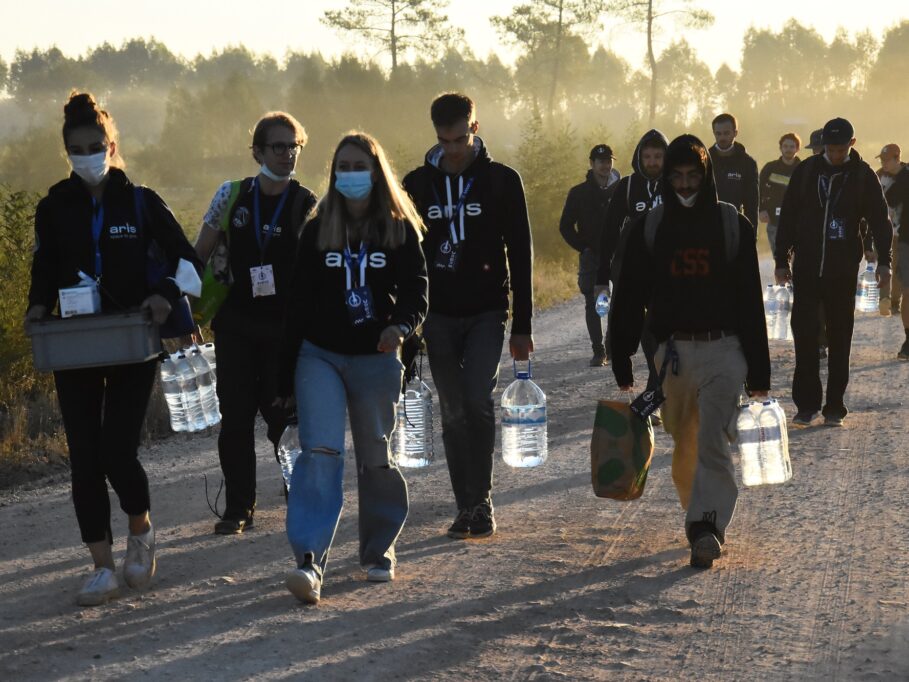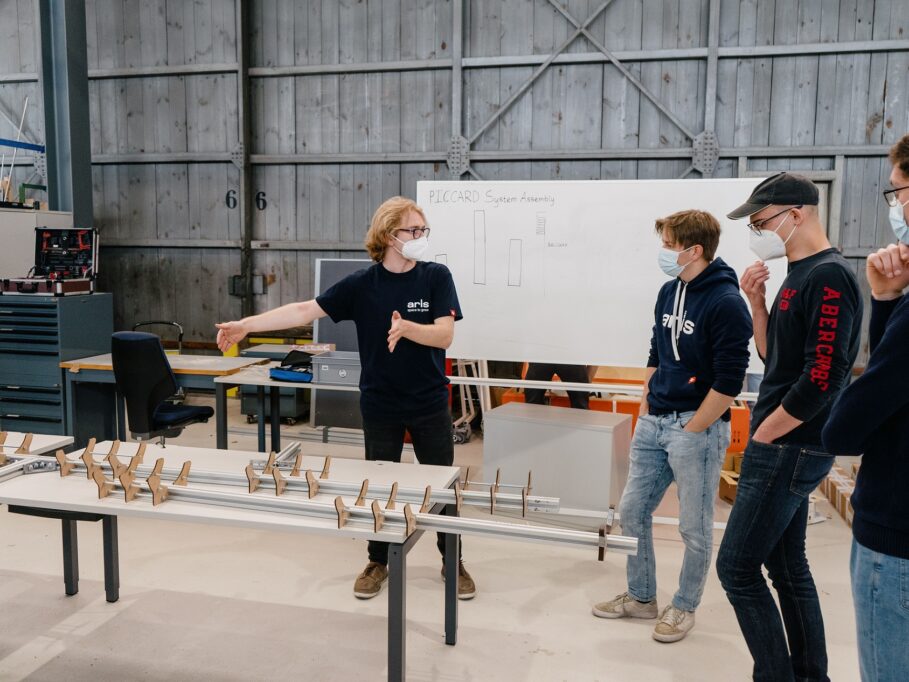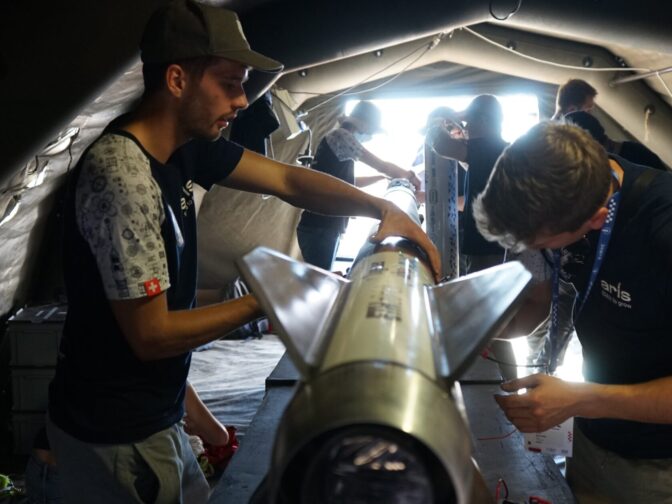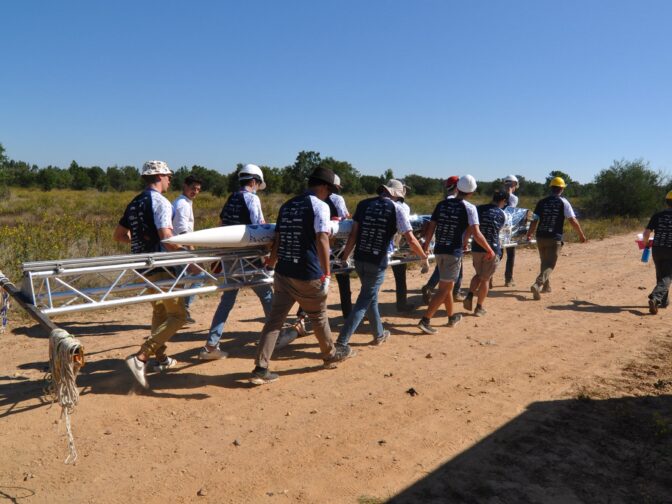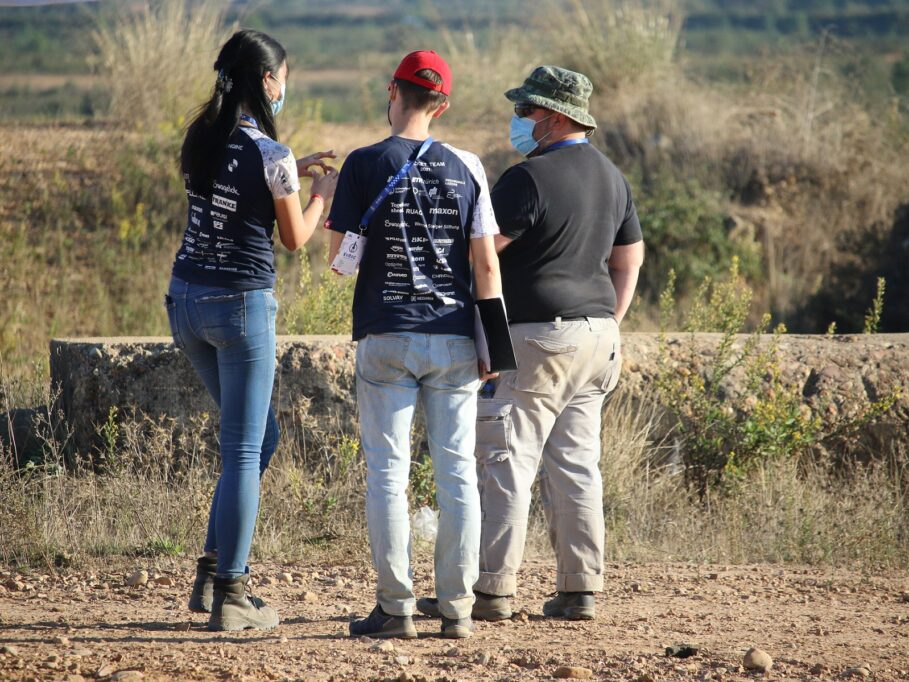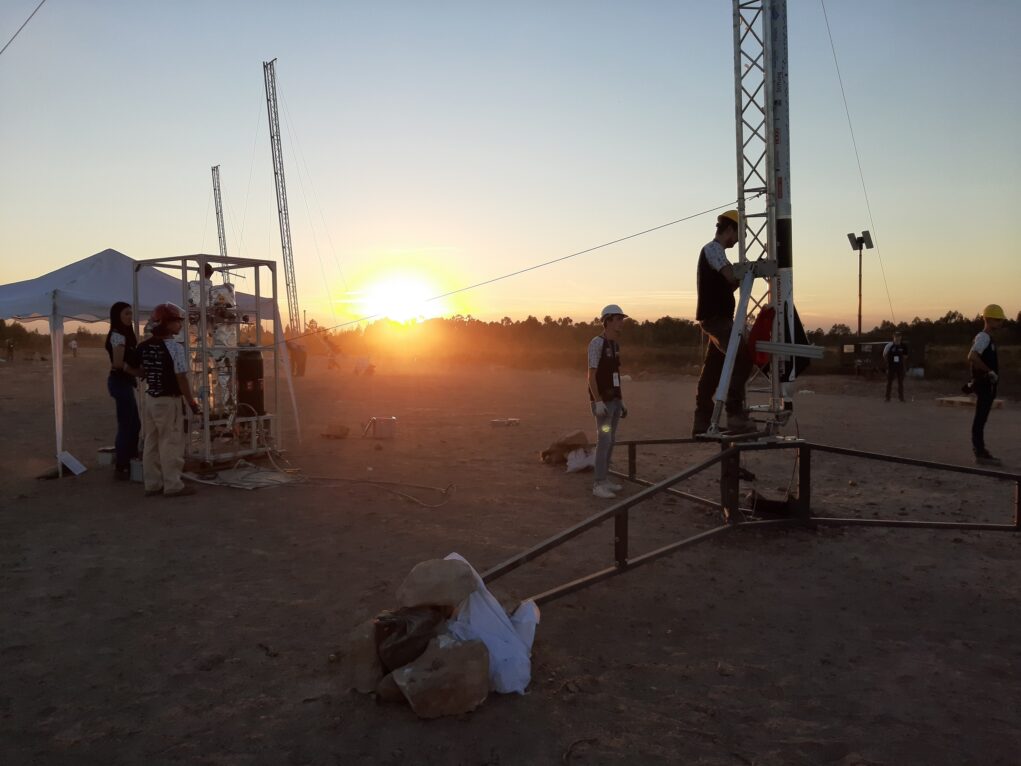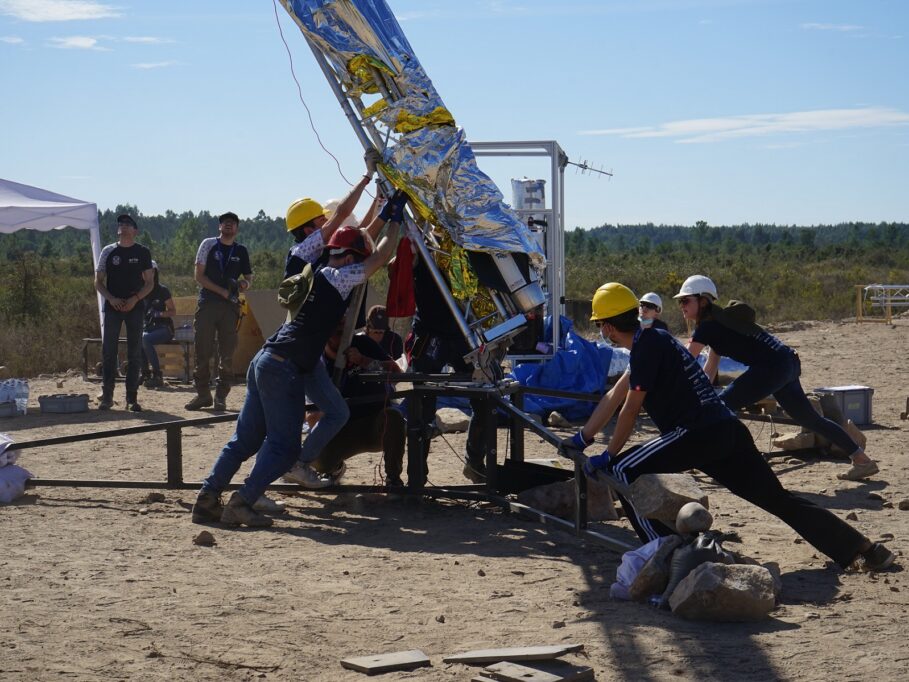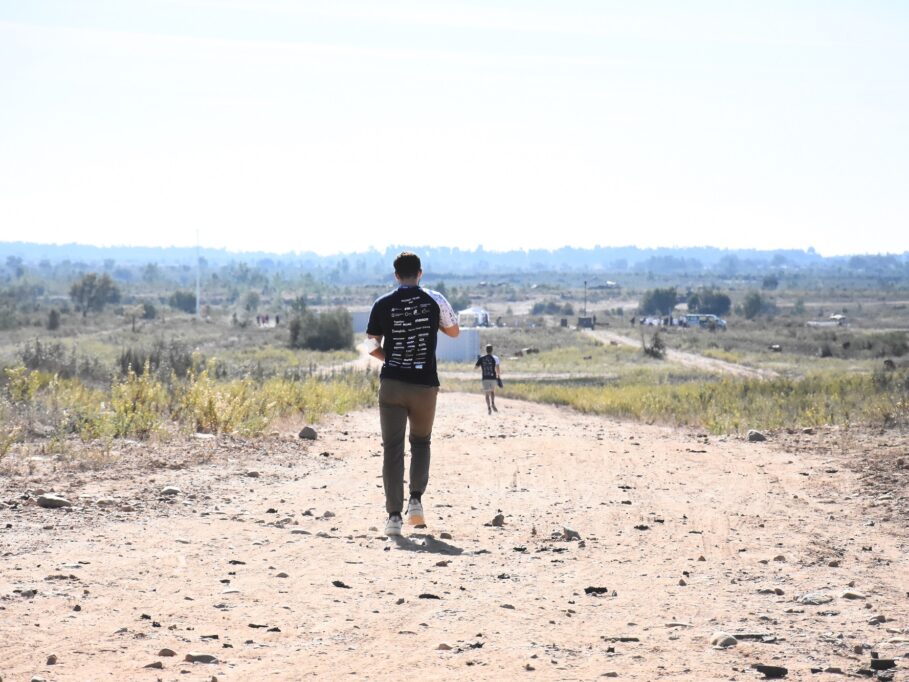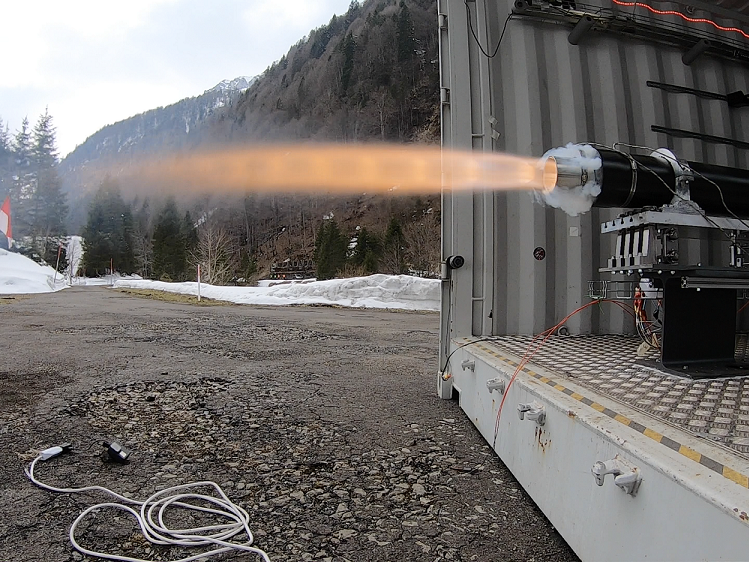The tension and excitement in the team were almost tangible when the countdown for the maiden launch of the PICCARD rocket started for the second time within three days. Two days earlier, preparations didn’t go as smoothly as hoped for, but in the end, the rocket stood erect on launch pad number four at the European Rocketry Challenge. The team was ready for the first hybrid launch in the history of ARIS. Over fifty members had invested a year of long hours and intense reviews and were now waiting to see their 6.3 meter long rocket lift off for the first time.
ARIS Rocket Reaches New Heights
by Aaron Ehrat, student at ETH Zurich, 18 November 2021
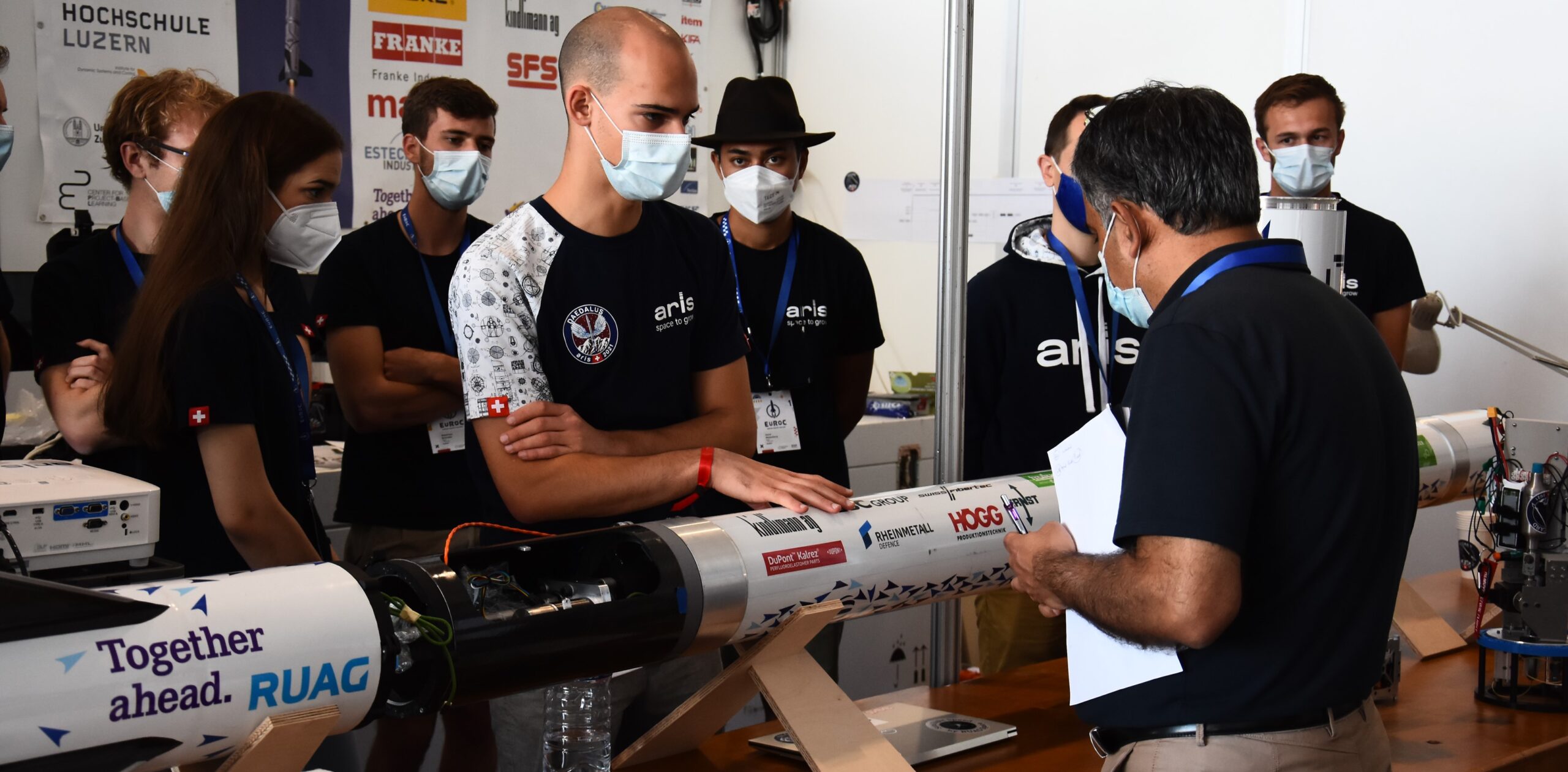
A flight readiness review was conducted to ensure the safety of the system. (photo credit: Dario Giardinelli)
After an intense year of engineering and testing, the ARIS rocket PICCARD lifts of at the European Rocketry Challenge – and sets a new world record in hybrid rocketry.

The team arrives at the launch site. (photo credit: Dario Giardinelli)
Everyone knew that this was the final chance to launch PICCARD at the competition. The first launch attempt on Wednesday had failed because of a small operational mistake. After having analysed that failure, the team was now as determined as ever to do everything required to launch the rocket. And while the rocket assembly itself went very smoothly on Friday morning, now it was the remote filling station that was acting up. Due to the fine, dust-like sand in the Portuguese desert, a thread-connection between an oxidizer bottle and the rocket’s tank was damaged. After desperately trying to fix the connection, the decision was taken to only use one of the two commercial oxidizer bottles to fill the tank.
Luckily, the environmental circumstances were just right, and the filling procedure was carried out efficiently and successfully. As a result, it was only the decoupling of the filling system and the rocket that stood between the team and their second launch attempt. And like in a movie, what should have been a routine task almost led to failure of the whole operation. The decoupling mechanism was actuated, and after a few long seconds where everyone held their breath, nothing happened. The team tried again and again, but the system seemed to be stuck.
The situation looked very grim, because this failure mode was unknown to the team. With the end of the 15-minute launch window approaching rapidly, a decision needed to be taken fast. Heroically, one of the range safety officers from the organisation volunteered to go up to the rocket and disconnect the mechanism manually. And so, he did: with a member of the team giving him instructions over the radio, the range safety officer decoupled the system manually and the rocket was finally ready to launch.
17:12. Three minutes left in the launch window. All systems were checked once again and suddenly, the speaker announced: All systems go. 10, 9, 8, 7, 6, 5, 4, 3, 2, 1, ignition. Another moment of silence before the engine erupted and the rocket left the launch rail straight as an arrow.
The maiden launch of the PICCARD rocket was a historic event, not only for the ARIS organisation, but also in the world of student rocketry. With an achieved flight height of over 6000m, a new world record was set. Never has a hybrid rocket of this category, researched and developed by students, flown higher than PICCARD. Certainly, it was a launch that no one in the team will ever forget.
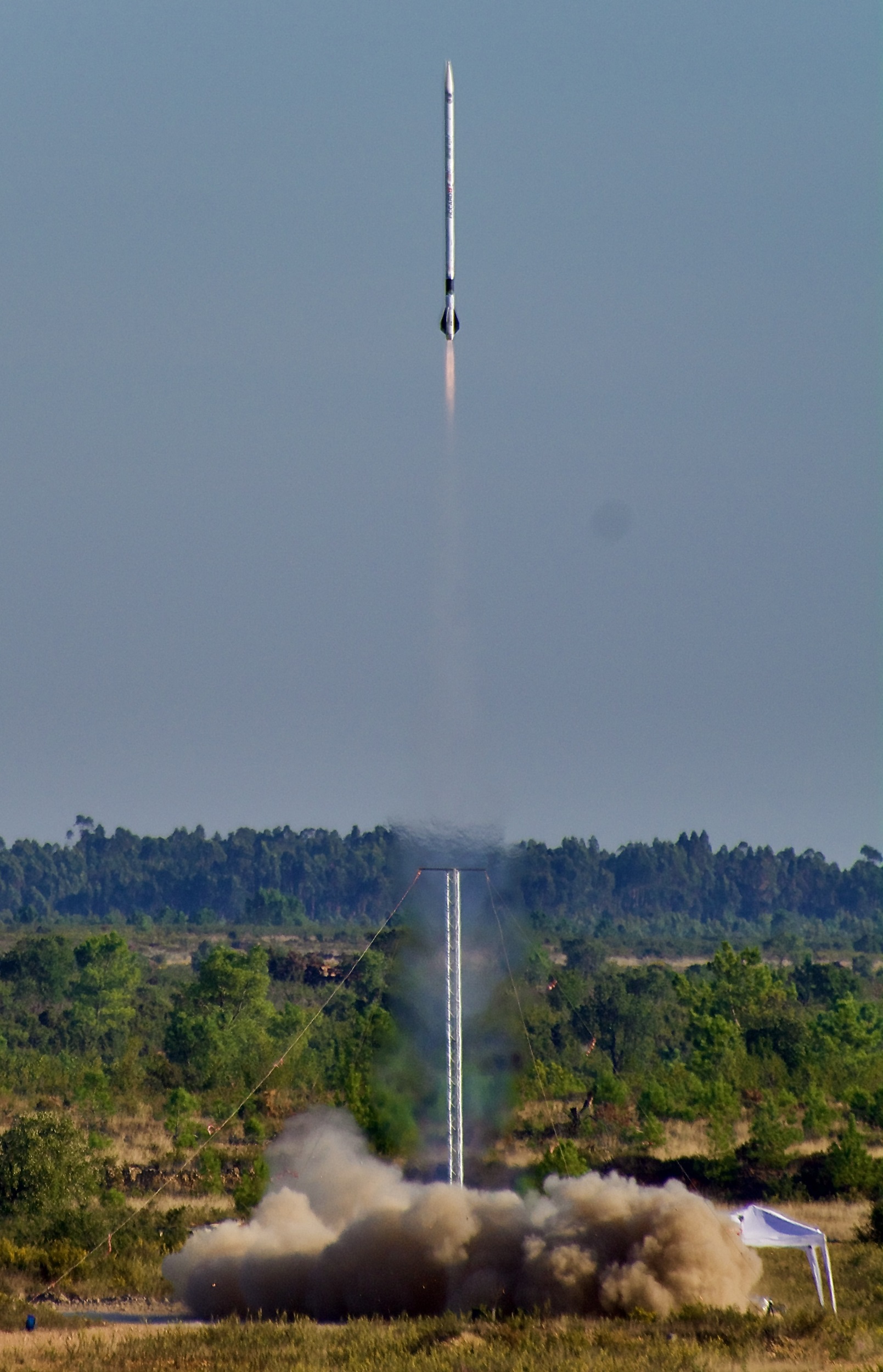
PICCARD taking off for the first time. (photo credit: Erik Uythoven)

The team after the launch. (photo credit: Erik Uythoven)
Link
More information about the Swiss space initiative can be found on the ARIS website.
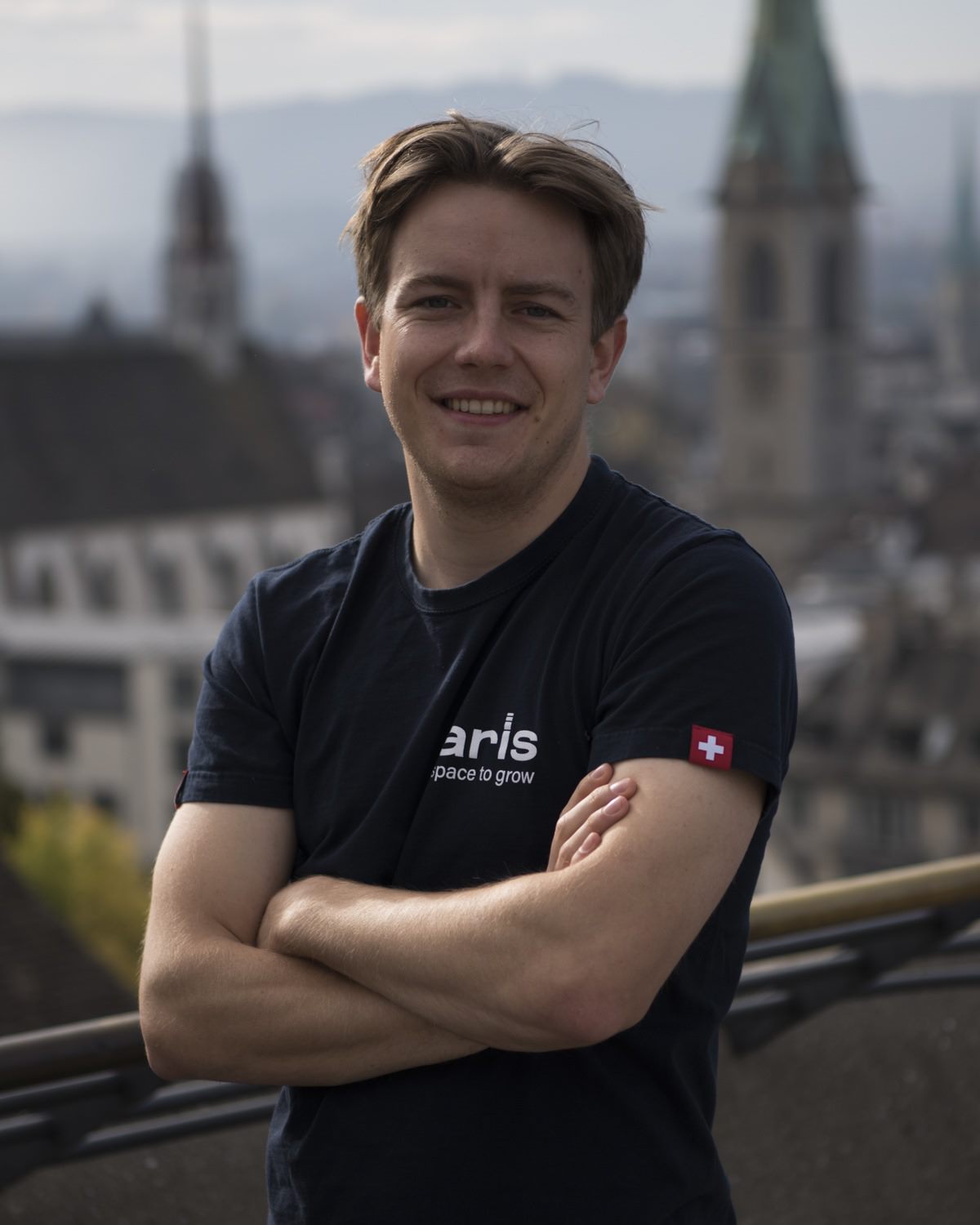
Photo credit: Kristian Feller
About the author
My name is Aaron Ehrat, I am doing my bachelor’s degree in mechanical engineering at ETH Zurich. During my last year at ARIS I was the project manager of the engine team.


